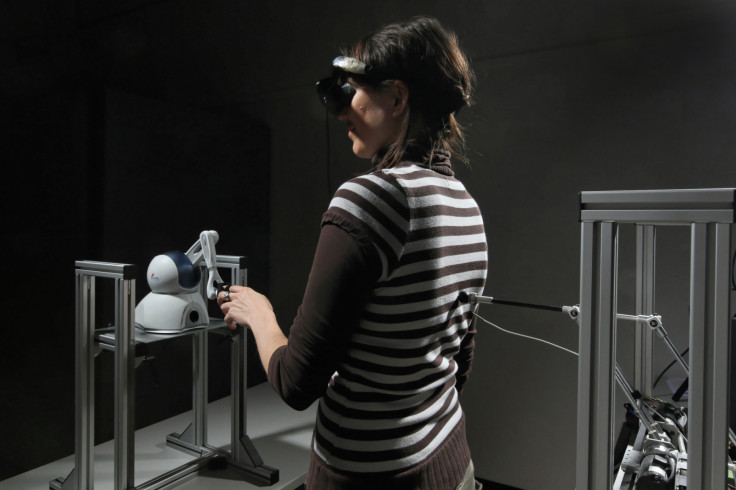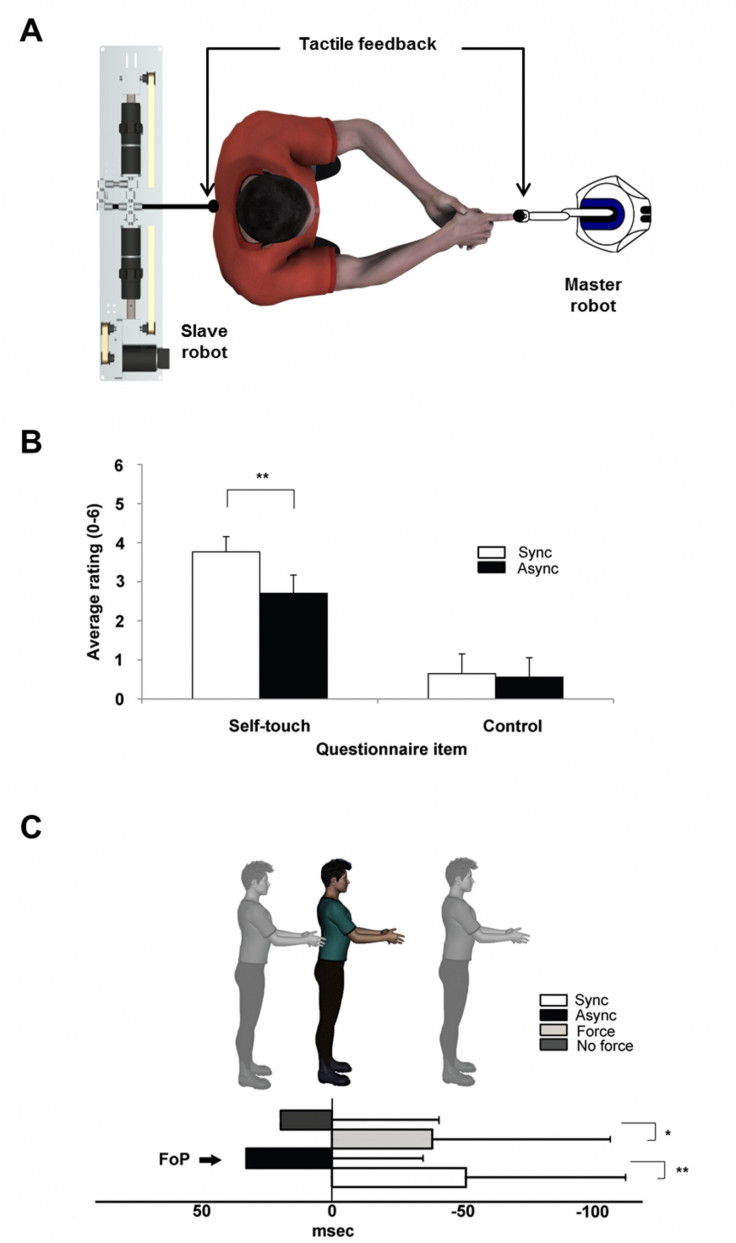Ghosts 'Just a Trick of the Mind', Scientists Prove with Robot

Feeling a presence of another being in a room does not mean there is a ghost there with you, scientists have proved.
In fact, the phenomenon of "feeling a presence" is in fact just a trick of the mind, resulting from the alteration of sensorimotor brain signals involved in generating self-awareness.
The sensorimotor signals integrate information from our movements and our position in a space. Three regions of the brain – the insular cortex, parietal-frontal cortex, and the temporo-parietal cortex – contribute to a multisensory signal processing that allows for the perception of our own body. When people feel there is a ghost in the room with them, these signals get mixed up.
Feeling a presence is a very common occurrence, especially among people with neurological disorders and those under extreme physical stress or exhaustion. Mountaineer Reinhold Messner in 1970 described how on his descent of Nanga Parbat in the Himalayas that all of a sudden there was another climber there with him, a few steps behind and just out of his field of vision.
Most people who encounter these presences describe a presence of a guardian angel or demon.
To test these ghosts of the mind, scientists at the Ecole Polytechnique Fédérale de Lausanne (EPFL) in Switzerland created a robot that can recreate these feelings in otherwise healthy people just by sending mixed up sensorimotor signals to their brains.
Researchers led by Olaf Blanke analysed the brains of 12 people with neurological disorders who had experienced a ghostly presence to establish where in the brain the phenomenon comes from.
They then carried out an experiment where blindfolded healthy participants performed movements with their hand in front of their body. A robot behind them reproduced their movement, touching them on their back. In this case, participants' brains could work out there was a robot there.

However, after introducing a temporary delay between the participants' movement and the robot's touch, distorting temporal and special perception, the 'ghost illusion' was created.
Participants reported a strong feeling of a presence, with some saying they believed another person was standing behind them and touching them.
"In our first experiment [with the robot], 30% of the healthy participants spontaneously reported the feeling of having somebody behind them, touching them," Blanke said. "Such spontaneous reports are quite unusual in the field of bodily illusions.
"Our experiment induced the sensation of a foreign presence in the laboratory for the first time. It shows that it can arise under normal conditions, simply through conflicting sensory-motor signals. The robotic system mimics the sensations of some patients with mental disorders or of healthy individuals under extreme circumstances. This confirms that it is caused by an altered perception of their own bodies in the brain."
During the experiments, two of the participants responded so strongly they asked the experiment be stopped. "Several people reported it was a spooky, creepy and bizarre sensation," Giulio Rognini, one of the study co-authors, told IBTimes UK.
"For some of them it was so strong they asked to stop it for a while but then of course we continued the experiment. It wasn't like they wanted to escape from us. It's just a simple manipulation that leads to the sensation of something touching you, which can create emotional feelings relating to the presence."
Researchers said they do not think their findings will stop people believing in ghosts and Rognini added that they have not proved ghosts do not exist: "This is the most interesting question for a lot of people! We cannot really generalise so strongly - what we studied was a specific phenomenon occurring in neurological patients. We don't know how our findings will translate in other areas.

"We can speculate that there might be an underlying dysfunction in terms [of what we saw in] patients and how we showed we were able to induce it in healthy participants. But there might be feelings that we are not able to explain."
Published in the Cell Press journal Current Biology, researchers said one of the interesting aspects of their findings was the possibility of an increased understanding of schizophrenia, as patients often suffer from hallucinations of a presence of an alien entity, whose voice they hear and actions they feel.
"In principle, by understanding the mechanisms and because we were able to induce it, we could target it to reduce errors in their brains."
To test their findings further, Rognini said they would like to study healthy people further: "One thing we would like to do is to bring our robot to the mountains to see what people in conditions above 6,000m respond – the brain is less oxygenated so it would be more prone to illusion.
"Another way we say that the feeling of a presence is in people who are exhausted or extreme conditions physically. We would like to get people to be tired, then use the robot to see if it affects the induction of a presence".
Concluding, the authors added: "We provide a solid scientific explanation for a complex state of the conscious human mind that has fascinated mankind for a long time and inspired diverse fields in the humanities, testifying to the broad relevance of our findings, while remaining highly specific in the proposed neurobiological mechanisms."
© Copyright IBTimes 2025. All rights reserved.






















